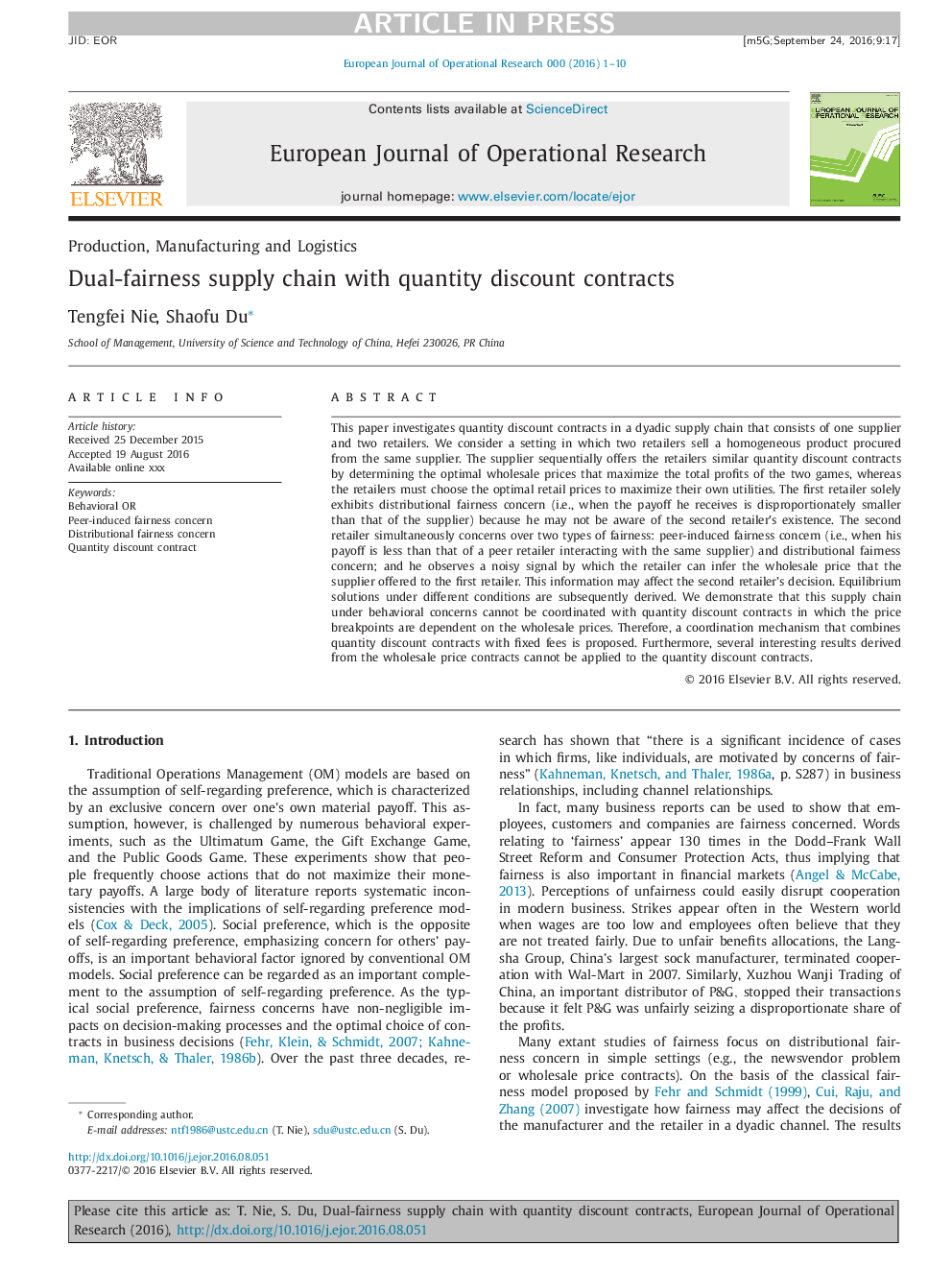| Article ID | Journal | Published Year | Pages | File Type |
|---|---|---|---|---|
| 4959990 | European Journal of Operational Research | 2017 | 10 Pages |
Abstract
This paper investigates quantity discount contracts in a dyadic supply chain that consists of one supplier and two retailers. We consider a setting in which two retailers sell a homogeneous product procured from the same supplier. The supplier sequentially offers the retailers similar quantity discount contracts by determining the optimal wholesale prices that maximize the total profits of the two games, whereas the retailers must choose the optimal retail prices to maximize their own utilities. The first retailer solely exhibits distributional fairness concern (i.e., when the payoff he receives is disproportionately smaller than that of the supplier) because he may not be aware of the second retailer's existence. The second retailer simultaneously concerns over two types of fairness: peer-induced fairness concern (i.e., when his payoff is less than that of a peer retailer interacting with the same supplier) and distributional fairness concern; and he observes a noisy signal by which the retailer can infer the wholesale price that the supplier offered to the first retailer. This information may affect the second retailer's decision. Equilibrium solutions under different conditions are subsequently derived. We demonstrate that this supply chain under behavioral concerns cannot be coordinated with quantity discount contracts in which the price breakpoints are dependent on the wholesale prices. Therefore, a coordination mechanism that combines quantity discount contracts with fixed fees is proposed. Furthermore, several interesting results derived from the wholesale price contracts cannot be applied to the quantity discount contracts.
Related Topics
Physical Sciences and Engineering
Computer Science
Computer Science (General)
Authors
Tengfei Nie, Shaofu Du,
